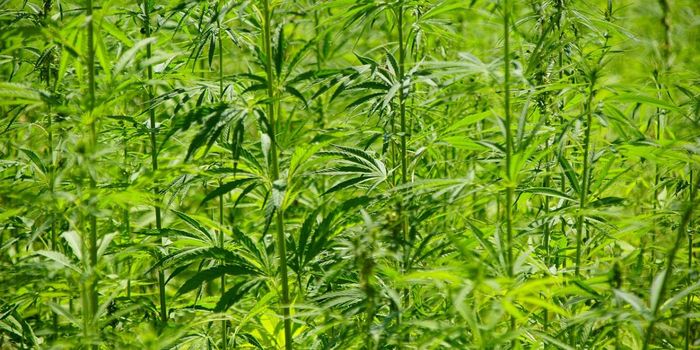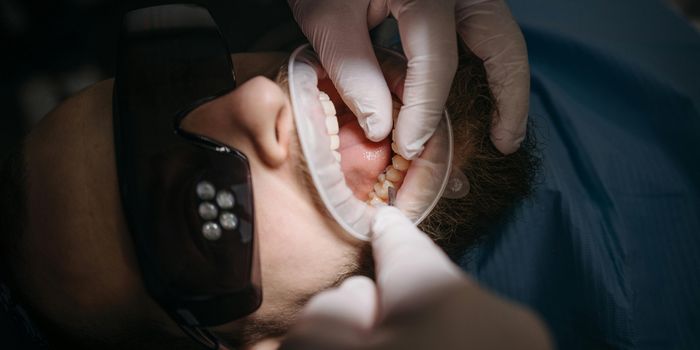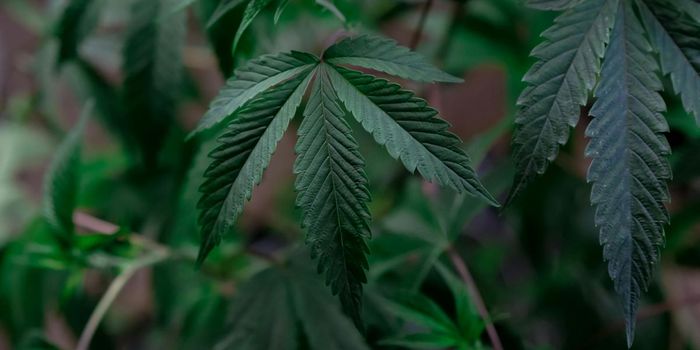Cannabidiol (CBD) oil has been touted as the "safe" cannabinoid, different from its psychoactive cousin delta9-tetrahydrocannabinol (THC). Reports have suggested that CBDs have therapeutic benefits, are generally considered non-psychoactive, and, most prominently, CBDs counteract the effects of THC, essentially bringing down your "high". Well, a new study out of Australia by Dr. Nadia Solowi and colleagues have found evidence that CBD actually enhances the effects of THC in ingested cannabis.
Photo source: Pixabay.com
The authors, who published in the journal European Archives of Psychiatry and Clinical Neuroscience, used subjective reports from 36 study participants while on THC alone or a combination of THC and low or high doses of CBD. It was previously believed that these two substances counteracted each other, at both the subjective level and the pharmacological level.
THC is a partial agonist at CB1 receptors. This means it weakly activates the CB1 receptor while blocking endogenous ligands (such as endocannabinoids), while CBD is a low-affinity CB1 and CB2 receptor agonist. That means that it activates endogenous cannabinoid receptors, but are easily unbound. It is also a negative allosteric modulator at CB1, which means it reduces ligands from binding to CB1. Thus, pharmacologically speaking, it would seem that CBD would counteract THC's effect at the receptor level.
The previous evidence that CBD counteracts THC comes from in vitro, ex vivo, and human imaging studies. A functional resonance imaging (fMRI) study showed that different regions of the brain were activated/inactivated when participants were pretreated with CBD before THC administration (both IV). However, this study does not definitively demonstrate a CBD-countereffect of THC, nor suggests a mechanism.
Photo source: Adobe (with permission)
The counteractive assumption may also be due to the different effects THC and CBD produce when taken alone. Too high of a dose of THC can produce psychotic-like symptoms, while CBD has anti-psychotic properties. Also of note, is the rise in psychotic episodes in marijuana smokers of today's cannabis, which has had CBD bred out to leave as little as 3% to 0% of CBD left. These high-potent strains also have a significant amount of THC in them (as much as 20%). These observations contribute to the idea that CBD and THC oppose each other.
While CBD does ameliorate the anxiety- and psychosis-producing properties, there are also additive effects. For one, the preclinical literature has shown additive effects of CBD on THC's effects on movement in rats. Furthermore, CBD administration potentiates THC's antinociceptive (pain-blocking). And not only THC's "good" effects were potentiated, but also were its "bad" ones. CBD exacerbated the impairing effects of THC on spatial memory, hypoactivity, and hypothermia.
The current study found that the interaction of CBD and THC is very complex and nuanced and that the dosages of each, when combined, have a lot of influence on the subjective feelings of being "high". Interestingly, a high-dose of CBD alone produced feelings of a "high". However, the end results found that the participants felt the "highest" with a combination of THC and a low dose of CBD. They felt the least "high" with THC administered with a high dose of CBD. Thus, to say that one compound counteracts the other is an oversimplification. Many factors, including dose, potency and route of administration have to be considered when deciding how and when to take extra CBDs while smoking (legally, please) pot.
Sources: Neuropsychopharmacology, European Archives of Psychiatry and Clinical Neuroscience, British Journal of Pharmacology, GlaskoSmithKline, JAMA Psychiatry, Neuroscience and Biobehavioral Reviews, Psychopharmacologia, Psychopharmacology










